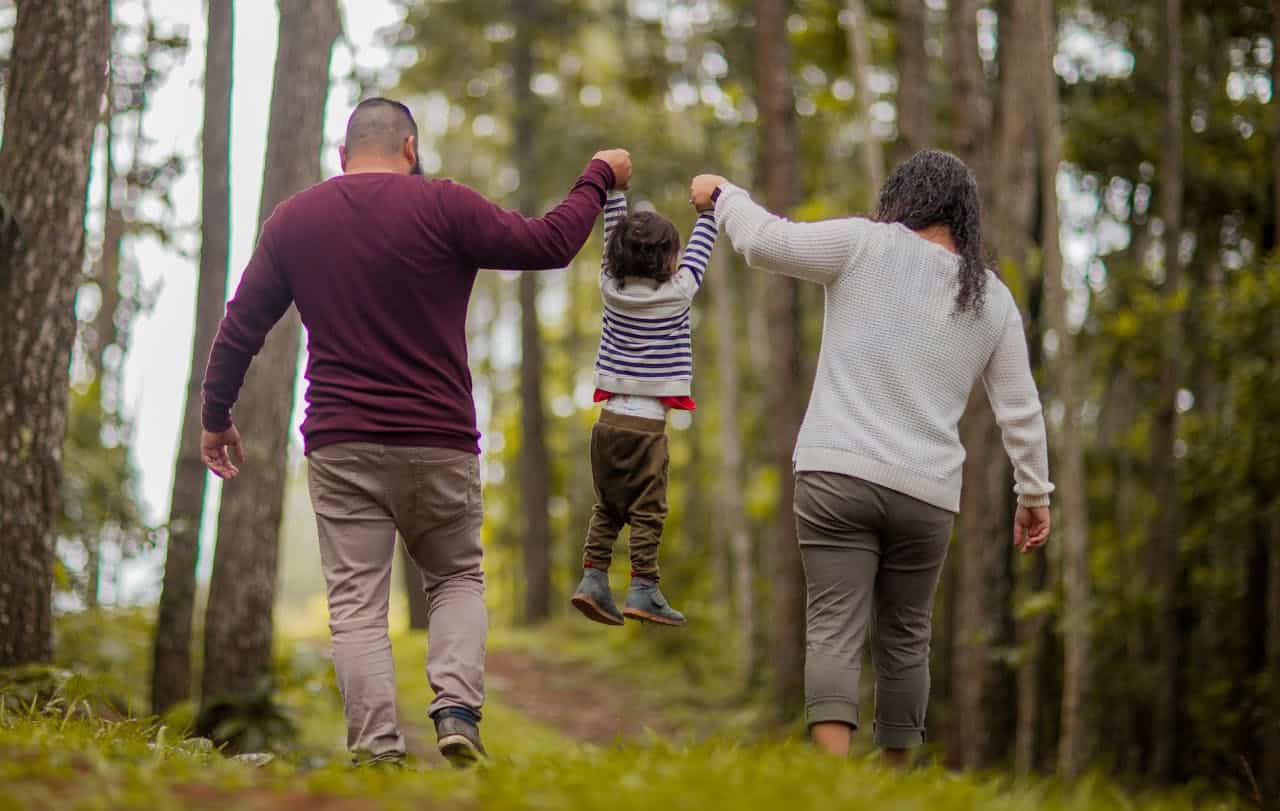Losing a parent is an experience that changes a person in unimaginable ways, regardless of age or the nature of the relationship. It is an inevitable part of life that almost everyone will face at some point. The loss of a parent leaves a lasting impact, reshaping one’s world in unexpected ways.
Whether the relationship is close or distant, parents play a significant role in shaping who we are. When they pass away, we often feel as if a guiding light has been extinguished, leaving us to navigate the world without their steady presence. This transition brings about a range of emotions and adjustments, from the immediate shock and grief to the longer-term adaptations in daily life.
11 Things That Change After Losing a Parent
Losing a parent is a profound life event that shifts your emotional landscape, daily routines, and even your perception of yourself. Here are eleven significant changes you may experience after the loss of a parent:
- Loss of Guidance: Searching for a New Compass
Losing a parent often feels like losing your “true north.” Parents serve as lifelong guides, offering advice and support in various aspects of life, from career decisions to parenting tips. Their absence can leave a deep void, making you feel adrift and uncertain about future decisions. - Altered Daily Life: Coping with the Void
Parents fill our lives with comfort and stability, often without us realizing it. Their presence in daily routines—from phone calls to family dinners—provides a reassuring rhythm to our lives. When they’re gone, the disruption to these routines can feel disorienting, and adjusting to a new normal without them requires time and emotional energy. - Revised Traditions: Holidays Without Their Presence
The loss of a parent transforms holidays and special occasions from joyful celebrations into times of poignant remembrance. These events become emotional milestones, often bringing grief into sharper focus. The first holiday season without a parent, in particular, can amplify the sense of loss, as families struggle with whether to maintain, alter, or establish new traditions. - Unresolved Feelings: Handling Regrets
The death of a parent often brings a mix of emotions, including regrets over unresolved conflicts or things left unsaid. These feelings can be overwhelming, but it’s important to balance them by remembering the positive aspects of the relationship and the good times shared, which can provide comfort and a pathway to healing. - Memory Triggers: Waves of Unexpected Emotions
After losing a parent, memories can resurface unexpectedly, triggered by sights, sounds, or smells that remind you of them. This can be both comforting and painful, as these memories bring back moments of joy interspersed with the reality of their absence. - Enduring Sadness: Learning to Live With Grief
Grief doesn’t follow a neat timeline and the sadness from losing a parent can linger long after they’re gone. This enduring sense of loss is a reflection of the deep bond you shared and navigating this prolonged grief is a personal journey that often requires accepting and learning to live with the sadness. - Strengthened Bonds: Drawing Closer to Family
Losing a parent not only affects you but also other family members. Supporting each other, sharing memories, and finding comfort in collective remembrance can strengthen family bonds in the face of grief. - Isolation in Grieving: Feeling Left Behind
It can be difficult when it seems like others are moving on more quickly than you are. This can lead to feelings of isolation and frustration, but open communication about your grief can help others understand your ongoing struggles and offer continued support. - Sensitivity to Others’ Complaints: Navigating Frustration and Empathy
You may find yourself particularly sensitive to others complaining about their parents. This sensitivity is a natural part of grieving and learning to navigate these feelings involves setting boundaries and finding ways to communicate your needs to others sensitively. - Renewed Appreciation for Family: Valuing What Remains
The loss of a parent often brings a newfound appreciation for the remaining family members. This can inspire a deeper commitment to nurturing these relationships, recognizing the precious nature of time and the importance of family bonds. - Unveiling Secrets: Discovering New Aspects of Their Life
Sometimes, the loss of a parent can reveal surprising secrets about their lives. Whether these are minor or significant, these revelations can alter your understanding of your family history and dynamics, requiring you to integrate these new aspects into your ongoing relationship with their memory.

The Lifelong Impact of Parental Influence
The role of parents in shaping an individual’s life extends far beyond the formative years of childhood, continuing to influence and guide well into adulthood. This enduring impact manifests in various aspects of personal and social development, highlighting the profound connection between generations.
Childhood and Early Development
In childhood, parents lay the groundwork for their offspring’s future personality, behavior, and values. They are the primary source of emotional support, discipline, and education. The styles of parenting—whether authoritative, permissive, or authoritarian—significantly affect a child’s confidence, self-esteem, and ability to interact with the world.
For instance, supportive and nurturing parenting has been linked to higher academic achievement and emotional well-being, while overly strict or detached approaches might foster anxiety and lower self-esteem.
Adulthood Transitions
As children mature into adults, the parental role transitions from direct oversight to more of a supportive and advisory capacity. However, the foundational values and lessons imparted during childhood continue to influence decision-making, career choices, and even parenting styles when the children become parents themselves. During this stage, adults often reassess and reflect on their parental relationships, sometimes leading to deeper appreciation or, conversely, critical evaluations of their upbringing.
Midlife and Role Reversal
Midlife often brings about a role reversal, where adult children may find themselves taking on caregiving responsibilities for their aging parents. This shift can alter family dynamics and bring unresolved conflicts to the surface, but it also offers an opportunity for reconciliation and deeper understanding.
The way parents age and cope with the challenges of later life can impact their adult children, influencing their attitudes towards aging, health, and resilience.
Legacy and Memory in Later Life
In the later stages of life, especially after a parent passes away, their legacy continues through memories, enduring lessons, and the emotional blueprint they’ve embedded in their children.
This legacy can shape the grandchildren’s lives as well, as parenting styles and values are often passed down through generations. The reflections and memories of deceased parents often gain significance, shaping the individual’s understanding of family history and personal identity.
Emotional and Psychological Influence
Throughout life, the emotional and psychological influence of parents remains a cornerstone of an individual’s mental health. Studies have shown that parental support and understanding in adult life are crucial buffers against stress and are associated with better psychological resilience. Conversely, unresolved parental conflicts can continue to cause emotional distress well into adulthood.

My Personal RX on Strengthening the Parent-Child Bond
The bond between children and parents is foundational to a child’s development and well-being. Strengthening this relationship can enhance emotional security, improve communication, and foster a nurturing environment that supports healthy growth. As a son and father myself, I advocate for approaches that promote mutual understanding and emotional well-being, not just through activities but also through maintaining the physical and mental health of the family.
- Engage in Shared Activities: Spend quality time together by engaging in activities that both children and parents enjoy. This could be as simple as reading a book together, going for a walk, or playing a board game. Shared experiences create memories and strengthen bonds.
- Communicate Openly and Regularly: Foster an environment where open communication is encouraged. Listen actively to your children’s thoughts and feelings without judgment. This promotes trust and shows that you value their opinions and emotions.
- Incorporate MindBiotic into Daily Routines: As part of maintaining optimal health for the whole family, consider adding MindBiotic to your daily regimen. This supplement not only supports gut health but also enhances mental clarity and mood stability, which can be beneficial in managing stress and improving interactions within the family.
- Establish Family Routines: Create consistent routines like family dinners or weekend outings. Routines can provide a sense of security and predictability that is comforting to children and strengthens family ties.
- Teach and Practice Empathy: Model empathy and teach your children how to express it. Understanding and sharing each other’s feelings can deepen emotional connections and improve the way family members relate to one another.
- Follow My Protocol for Holistic Health: Utilize my comprehensive Protocol to holistic living that includes tips on nutrition, exercise, and stress management. A healthy lifestyle can improve physical and mental well-being, making family interactions more positive.
- Support Emotional Development: Participate actively in your child’s emotional development by recognizing their feelings, teaching them to manage emotions, and validating their experiences. This support is crucial for building self-esteem and a strong parent-child bond.
- Prioritize Personal Well-being: Ensure that as a parent, you also take time for your own health and well-being. A healthy, happy parent is more equipped to foster a positive and supportive family environment.
Taking a holistic approach that includes physical, emotional, and spiritual care is essential during the grieving process. Remember, it’s okay to seek support and take time to heal.












 Subscribe to Ask Dr. Nandi YouTube Channel
Subscribe to Ask Dr. Nandi YouTube Channel









